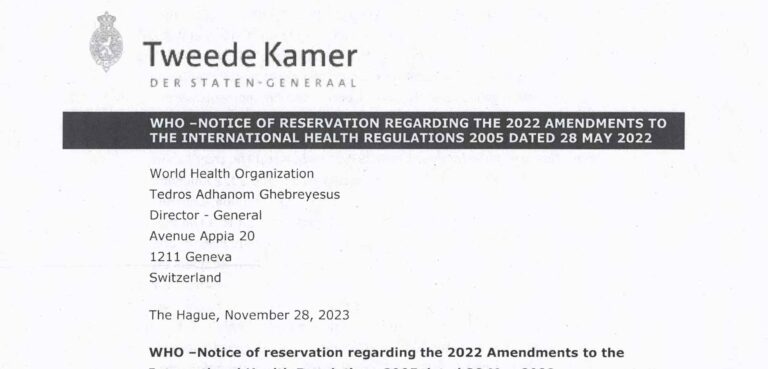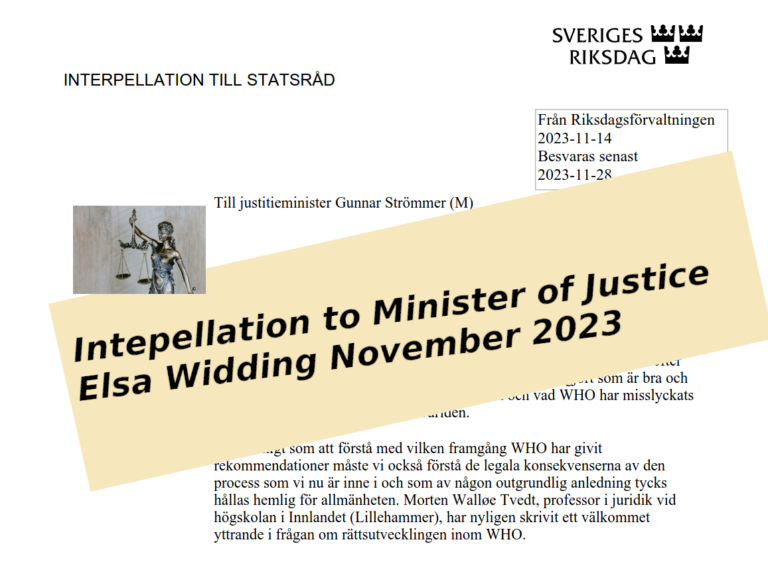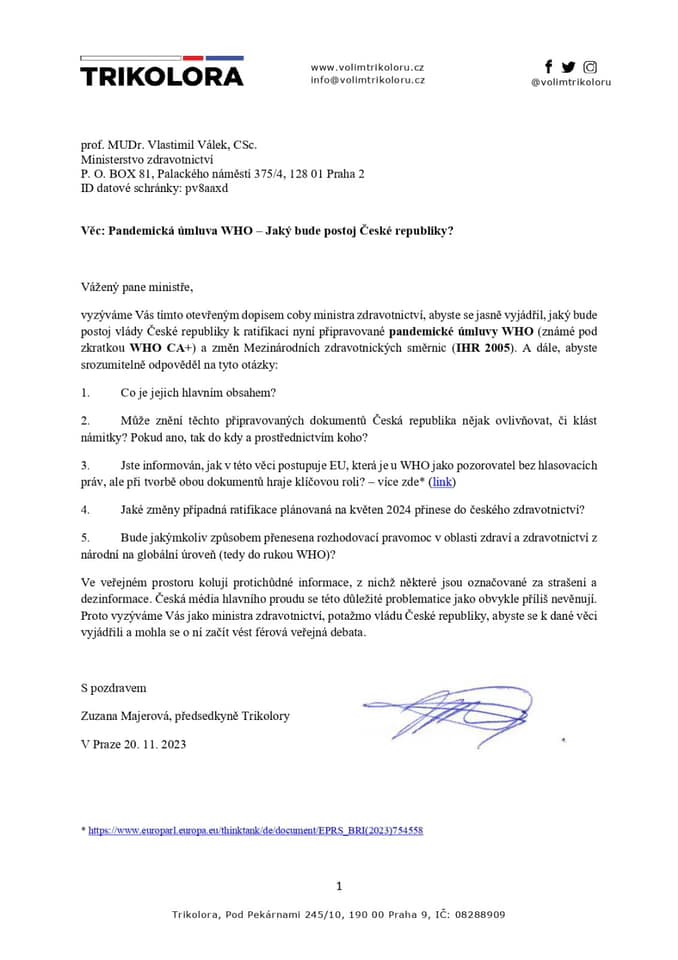This article is a repost. It was originally published by The Defender
Dr. Meryl Nass, an internist, biological warfare expert and founder of Door to Freedom, and George Simion, a member of Romania’s Chamber of Deputies and president of the Alliance for the Union of Romanians, spoke about the dangers of globalism and the growing political momentum opposing it on this week’s episode of “The Defender In-Depth.”
Opposition to global governance was at the forefront at the recent International Crisis Summit (ICS-5) and Sen. Ron Johnson’s (R-Wis.) roundtable discussion Monday on the “COVID cartel” — it was also the focus of this week’s “Defender In-Depth” podcast.
Dr. Meryl Nass, an internist, biological warfare expert and founder of Door to Freedom, and George Simion, a member of the Romanian Parliament’s Chamber of Deputies and president of the Alliance for the Union of Romanians, spoke about the dangers of globalism and the growing political momentum opposing it on this week’s episode.
Nass and Simion discussed the significance of this momentum in an election year for the U.S., Canada, United Kingdom and Europe — with the European Parliamentary elections — and in light of the upcoming World Health Assembly in May, where the “pandemic agreement” and amendments to the International Health Regulations (IHR) may be adopted.
In one sign of the growing momentum, the Conservative Political Action Conference (CPAC), which hosted ICS-5, adopted a resolution calling for the U.S. and other countries to defund or exit from the World Health Organization (WHO).
CPAC resolution calls on nations to defund, exit the WHO
Nass said ICS-5 went beyond discussions related to COVID-19 to cover other issues of importance to humanity and freedom — a shift in focus signified by the new name of the summit, which was previously known as the International COVID Summit.
“This is the first time that really there was general acknowledgment that our problem goes way beyond a takeover of medicine and a management of a pandemic that was done very poorly and counterproductively,” Nass said. “People are now talking about … a coup to take over control of the world, global governance and using the WHO to do it.”
“I think now people have realized that this is part of a well thought out plan to wrest sovereignty from nations, and it is coordinated with other things, such as taking over control of lands, control of farms,” Nass added.
Simion credited Dr. Robert Malone, pioneer and expert in mRNA and DNA vaccines and therapies, and co-organizer of ICS-5, for getting the summit on CPAC’s agenda while also highlighting the importance of Johnson’s Senate roundtable.
“What Dr. Malone did … through putting this subject into the American political life, into the heart of the Republican Party,” is significant, Simion said. “It’s important to get this theme inside the political institutions, inside the institutions that take measures.”
Nass commented on CPAC’s resolution opposing the WHO.
“They really recognize that this is a sovereignty grab [where] the WHO is trying to give itself the right to tell all the nations of the world what laws they must pass in order to comply with the WHO’s orders,” she said.
As a result, CPAC “passed a resolution to condemn the attempts of the WHO, in coordination with the Biden administration, the Chinese Communist Party [and] the [Bill & Melinda] Gates Foundation, to surrender sovereignty to a de facto global government,” Nass said, noting the resolution “encourage[s] nations to exit and/or defund the WHO.”
‘We’re all in it together’
Nass and Simion highlighted the importance of this political visibility in the context of what they described as the growing threat of globalism.
“The new variant of the virus is not socialism, is not communism. It’s called globalism,” Simion said. He said it is “a continuation” of transhumanism, “woke” culture, cancel culture, and poses a threat to sovereignty and “our national identity.”
“The [next] pandemics … the climate change ideologies will come” from globalism, as will efforts to “impose social control, like digital identity,” Simion said.
Addressing concerns that opposition to globalism, to restrictions and measures such as those imposed during the COVID-19 pandemic and to the WHO’s proposed “pandemic agreement” and IHR amendments have been typecast as “right-wing” political positions, Nass said, “the terms left and right are meaningless at this point in time.”
“There is now an understanding amongst politicians and activists that we’re all in it together,” Nass said. “[We] have realized that we all have to work together and help each other and fight our common enemy, which is globalism.”
“The wealthiest elites have created organizations like the World Economic Forum [WEF] and have taken over control of organizations like the U.N. and the WHO to gain their own agenda, which is global control,” Nass said. “We are all now on the same page about this, and that was what was talked about [at ICS-5 and Johnson’s roundtable].”
Globalism, epitomized by organizations such as the WEF and its Young Global Leaders program, has helped groom “leaders of many countries and their subordinates,” Nass said, noting that they are “members of both parties, right and left.”
Citing Canadian Prime Minister Justin Trudeau, French President Emmanuel Macron and former British Prime Minister Tony Blair as examples of such leaders, Nass said, “We’ve got, basically, the globalism party … in power in most of these places.”
Simion said globalism and these leaders then promote ideas like 15-minute cities, pandemic “exercises” and “simulations” like Event 201, “politically correct vocabulary” and other concepts “that are not at all related to democracy and to freedom.”
In “the west and the free world in which we trusted and towards which we looked with hope … we see the lack of freedom, the lack of free speech, the lack of free elections, the lack of democracy,” Simion said.
“The plan is anti-democratic,” Nass said. “It is actually trying to chip away at the freedoms and the rights that are embedded in our constitution. The way the WHO itself was set up was to be an anti-democratic institution, something like the EU government, where you have an EU parliament, but they don’t actually get to make the laws.”
“The way the elites plan to gain control is by putting these anti-democratic organizations in to rule over us and having their own people at the helm,” Nass said. “For example, the WHO, which is funded 85% by donors, allows the Bill & Melinda Gates Foundation, the Clinton Global Initiative and other donors to have a seat at the table … whereas you and I have no access to that table.”
WHO proposals such as the “pandemic agreement” and IHR amendments have resulted from this, Nass said.
“The U.S. introduced amendments to the International Health Regulations and helped introduce a treaty at the WHO that are designed to consolidate power over public health in the WHO,” she said. “Why would the U.S. want to give up sovereignty for health and information to the WHO?”
For Nass, the answer is clear. “It’s because the people who are making those decisions are not concerned about the U.S. They’re concerned about transferring power to a globalist, totalitarian, technocratic way of doing things,” she said.
‘Only dictatorships like unanimous opinions’
Political momentum opposing global governance is growing, Nass said. In addition to CPAC’s resolution, Nass highlighted H.R.4665 — the “Department of State, Foreign Operations, and Related Programs Appropriations Act, 2024” — which would cut U.S. funding to the WHO. The U.S. House of Representatives passed the bill in September. It is now before the Senate.
“We have to demand that people running for office familiarize themselves with what the plan is at the WHO,” Nass said. She called for similar state-level efforts.
Simion pointed to Romania’s success story. “We managed to stop mandatory vaccination. We stopped the green certificate [vaccine passport] … we had a 35% rate of [COVID-19] vaccination,” noting Romania was in last place in the European Union concerning its national COVID-19 vaccination rate.
According to Simion, Romanian people “developed, in 50 years of communism, a sense of not trusting the government. We question everything and we have a sense of criticizing everything that comes from the authorities.”
Simion said this “is good, because not everybody should think the same and you should question all that is around you. Only dictatorships like unanimous opinions.”
Watch ‘The Defender In-Depth’ here:








